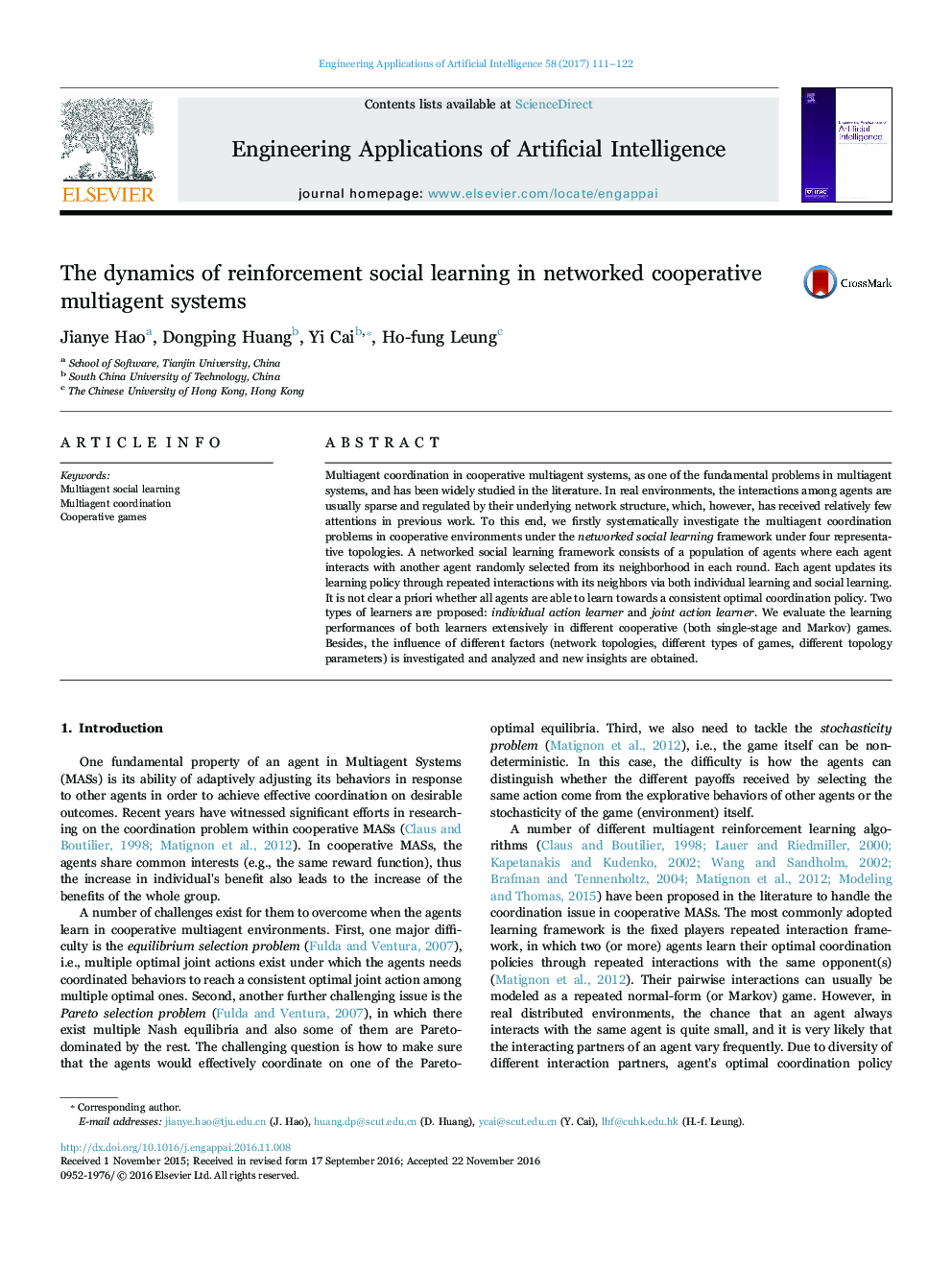| Article ID | Journal | Published Year | Pages | File Type |
|---|---|---|---|---|
| 4942790 | Engineering Applications of Artificial Intelligence | 2017 | 12 Pages |
Abstract
Multiagent coordination in cooperative multiagent systems, as one of the fundamental problems in multiagent systems, and has been widely studied in the literature. In real environments, the interactions among agents are usually sparse and regulated by their underlying network structure, which, however, has received relatively few attentions in previous work. To this end, we firstly systematically investigate the multiagent coordination problems in cooperative environments under the networked social learning framework under four representative topologies. A networked social learning framework consists of a population of agents where each agent interacts with another agent randomly selected from its neighborhood in each round. Each agent updates its learning policy through repeated interactions with its neighbors via both individual learning and social learning. It is not clear a priori whether all agents are able to learn towards a consistent optimal coordination policy. Two types of learners are proposed: individual action learner and joint action learner. We evaluate the learning performances of both learners extensively in different cooperative (both single-stage and Markov) games. Besides, the influence of different factors (network topologies, different types of games, different topology parameters) is investigated and analyzed and new insights are obtained.
Related Topics
Physical Sciences and Engineering
Computer Science
Artificial Intelligence
Authors
Jianye Hao, Dongping Huang, Yi Cai, Ho-fung Leung,
